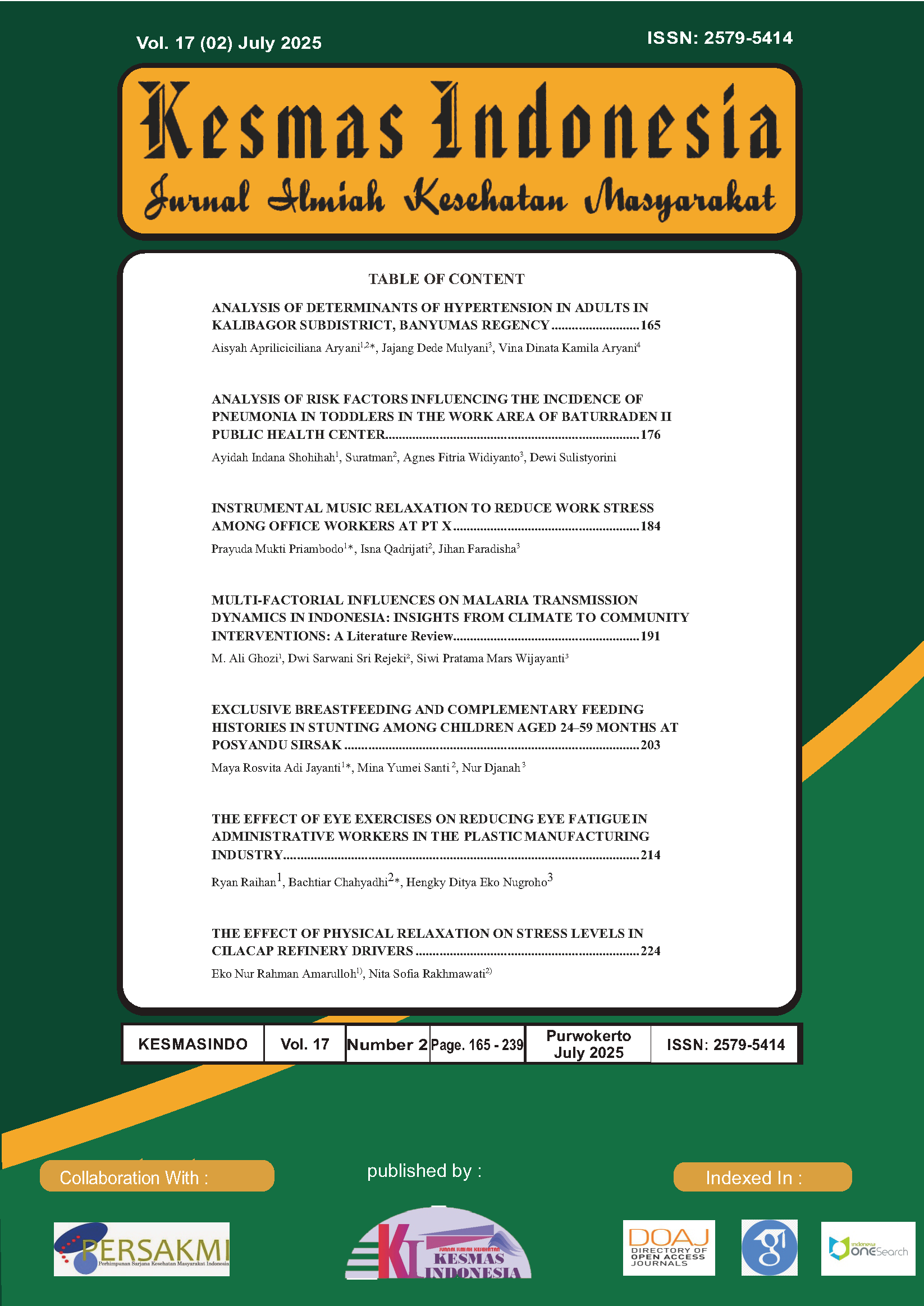THE EFFECT OF PHYSICAL RELAXATION ON STRESS LEVELS IN CILACAP REFINERY DRIVERS
Abstract
Stress is an adaptive reaction to a challenging condition that can threaten personal health, while stress levels are related to the amount of work/task demands that are influenced by emotions, thoughts and conditions that reduce individual positive responses. Various ways to reduce stress, one of which is physical relaxation, physical relaxation is the cheapest and easiest relaxation that is useful for minimizing anxiety when the body is working excessively by alternately relaxing the muscles. The study aims to determine the effect of physical relaxation on stress levels in Cilacap Refinery Drivers. This study used experimental research methods, with the type of Pre-Exsperimental Design. The approach used is One-Group Pretest-Posttest Design. The population in this study were all members of the Cilacap Refinery Driver as many as 60 people. The sampling technique used total sampling, so that the number of samples used amounted to 60 people. Stress levels were measured with the Perceived Stress Scale (PSS) questionnaire. Data analysis was performed by univariate analysis (frequency distribution) and bivariate analysis with Wilcoxon test. The results showed that there was a significant effect of providing physical relaxation intervention on stress levels in Cilacap Refinery Drivers with a p-value of 0.000 <0.05. Physical relaxation has an effect on reducing stress levels in Cilacap Refinery Drivers. Cilacap Refinery Drivers are expected to continue this intervention program regularly in order to minimise stress levels in drivers and can promote this intervention activity to all workers who work in the Cilacap Refinery area.




.png)





